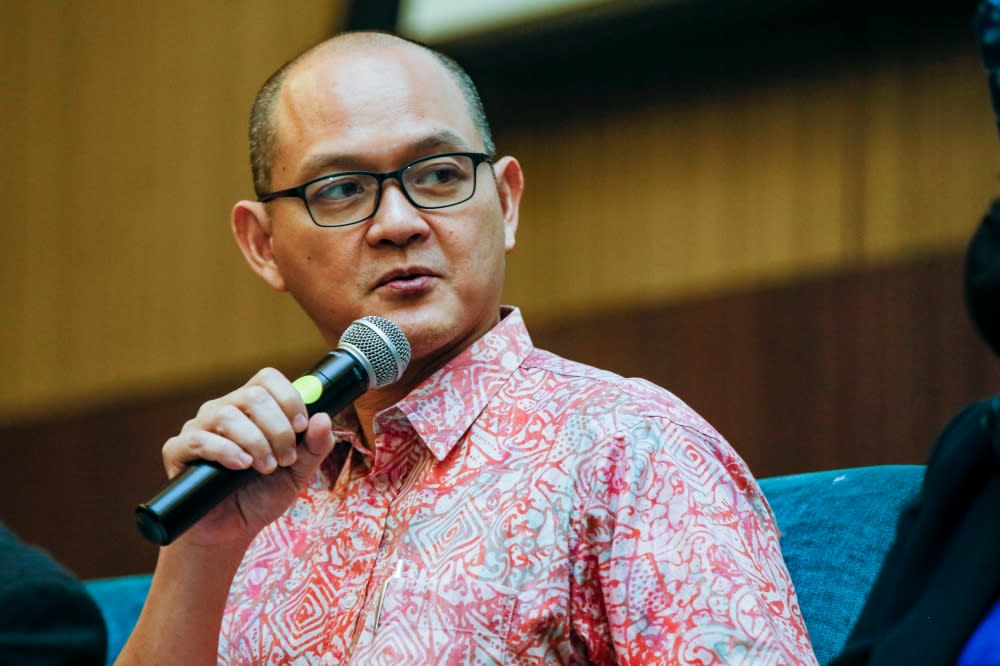Coherent messaging and local connection key to Pakatan’s defence of Kuala Kubu Baru state seat, says DAP man

KUALA LUMPUR, April 23 — Pakatan Harapan (PH) will face a tough battle to defend the Kuala Kubu Baru state seat in a by-election that starts this weekend, but coherent messaging in a campaign built on grassroots connections could help the coalition muster a narrow win, DAP politician Ong Kian Ming said today.
The ruling coalition will be aiming to defend the semi-urban seat in Selangor amid growing frustration over undelivered reforms and sustained living cost pressure among some of its staunch supporters.
Ong who is also a former Bangi MP said he expects the Opposition to capitalise on the grumbling, but maintains that PH could still mount an effective campaign by streamlining their messaging and enlist the support of community leaders who have built rapport with KKB's highly diverse electorates.
“One of the challenges which the candidate will have to face at the local level is lack of leadership and servicing in KKB because of the need for the late Lee Kee Hiong, the former ADUN, to seek cancer treatment after 2018 which impeded her ability to go to the ground in different areas in KKB,” he said in a statement.
“To win the trust of and to connect with the local communities in KKB which have different interests and needs, the candidate will have to enlist community leaders who are trusted and have good reputations who can be part of his or her team after the by-elections, assuming victory,” he added.
The DAP has yet to announce a candidate to replace Lee, which pundits said could be a sign that the party leadership are struggling to find a winnable candidate.
Lee, having served the constituency for nearly three terms, was said to have built strong connections with the community there but was mostly absent after her health deteriorated.
Ong said the candidate must be able to showcase a diverse team comprising special officers from the Malay, Chinese, and Indian communities whom he or she will lead as part of the KKB service centre.
“This will be a challenge as many younger and more energetic and dynamic people would want to seek career pathways outside KKB rather than to work in KKB as a politician’s special officer,” he said.
At the state and national level, Ong said PH needs to deliver a cohesive narrative. The former MP also suggested that PH rely less on project announcements as a means to induce support even if they are likely to be welcomed.
“But make no mistake, it will not necessarily win the by-election for the DAP candidate,” he said.
“If this was the case, then Barisan Nasional would not have lost the by-elections in Lunas in 2000 and in Sibu in 2010 or Umno would not have won the Semenyih by-election in 2019 and MCA would not have won the Tanjung Piai by-election in 2019 campaigning as opposition parties,” the DAP leader added.
“What is needed is a more comprehensive value-proposition not just to the voters of KKB but to the voters of Hulu Selangor to develop the entire district with the intention of winning back the parliamentary seat as well as the other two state seats in the next parliamentary and state elections.”
Ong in a statement yesterday outlined three possible scenarios for voter turnout. Only one scenario would lead to a PH victory — that is if voter turnout reaches the level seen at the 2023 state elections.
Even in the optimistic case, PH would still see its majority votes reduced significantly as more Malay voters who voted for it in the last elections could shun the coalition in favour of Perikatan Nasional, according to the DAP leader.
“From a campaigning perspective, it will be far easier for the opposition to attack the track record of the unity government since the 2022 general elections,” he said.
“The playbook will not be unfamiliar since we (the DAP) would have used this countless times when we were the Opposition campaigning in a by-election. We would ask the voters to cast a protest vote against the government knowing that the results won’t affect who is in power at the state and federal levels.
“This would be an opportunity to ‘teach those in power a lesson’ not to take the voters for granted and to “punish” them for their failure to deliver their promises on issues like institutional reform,” he added



